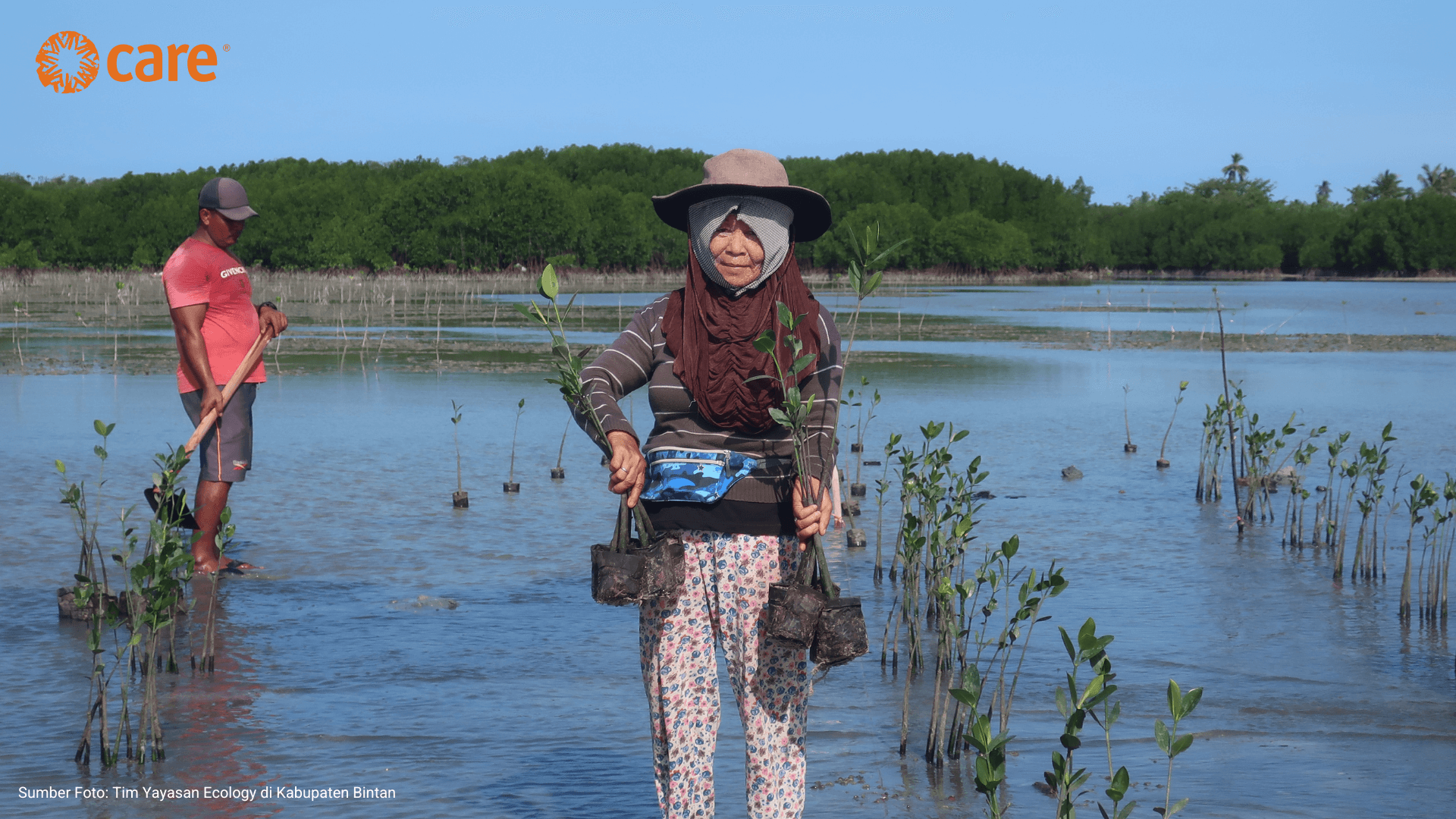In a remote hamlet in the Musi Banyuasin District, called Sungai Petai, stands a women’s economic group, a branch of the Women’s Economic Business Group (Kelompok Usaha Ekonomi Perempuan or KUEP) of the Dawas Village’s “Persatuan Kaum Sukses”. This group has become a new beacon of hope for the women living there. Despite the lack of proper road access, limited electricity, and a modest way of life, a group of women led by Sutilah has proven that limitations are no barrier to independence and mutual empowerment.
Sutilah begins the story by explaining that KUEP Dawas opened a branch in Sungai Petai Hamlet in early 2024. The long and difficult journey for KUEP members living in Sungai Petai to travel to Dawas Village was the main reason she took the initiative to open the branch in her hamlet. According to her, the trip from Sungai Petai to Dawas can take two to three hours, or even four to five hours when it rains and turns the roads into muddy trails.
“We have 17 active and trustworthy members in KUEP Sungai Petai. From them, we’ve selected the most committed ones. Currently, only four of us are also members of the main KUEP Dawas group, because most people here don’t have vehicles or the ability to drive the long distance to Dawas,” said Sutilah, now the coordinator of the KUEP Sungai Petai branch.
Four members from Sungai Petai—including Sutilah—became official members of KUEP Dawas. They were trusted because they could drive and had the time to travel. Representing the other members of KUEP Sungai Petai, Sutilah and three others applied for a loan of IDR 20 million from the main KUEP in Dawas. According to Sutilah, the loan was used to kickstart savings and loan initiatives as well as a basic food savings scheme for the 17 members of KUEP Sungai Petai.
“We used the capital to fund productive loans for activities like cassava farming, rubber tapping, and producing traditional foods like tiwul and eyek-eyek,” she explained.
KUEP Sungai Petai is still focused on savings and loans due to geographic limitations that prevent them from starting larger businesses. Even so, the savings and loan system is well-organized. To borrow money, members must register a month in advance—except in urgent cases like medical emergencies. “Selling goods from here is difficult; they could spoil on the road. An honest and orderly savings and loan system is the backbone of our economy,” Sutilah stated.
Sutilah’s story is not just about economics—it’s also about how women can be agents of change in their communities. “We have to be creative, women have to be strong. I’m also a volunteer with the Community Fire Awareness Group (MPA) in Dawas Village, and I always share any training I receive from CARE Indonesia with the other women in our village,” she said.
Her impact goes beyond economics. Sutilah also serves as a Gender-Based Violence (GBV) advocate in her village. Using a careful and friendly social approach, she and three other advocates integrate gender education into religious gatherings, community events, and casual conversations among women. “I told the men, at my house, my husband does the cooking when I’m busy. At first, they were shocked—but eventually, they started to think about it,” she said with a small laugh. Small changes like this have a big impact. She also educates residents about safe, non-burning land clearing methods she learned from CARE Indonesia training.
Sutilah also acts as a liaison between villagers and local government. She has single-handedly fought for access to identity cards, family cards, birth certificates, and even brought the civil registration office (Disdukcapil) to Sungai Petai. Beaming with pride, she recounted being offered the position of Hamlet Head by the subdistrict chief of Keluang. “I was once offered the role of Hamlet Head for Sungai Petai, but I turned it down because I didn’t think I could carry the responsibility. It felt like too heavy a task for me,” she said humbly.
Now, KUEP Sungai Petai is becoming more self-sufficient. The Ramadan food savings scheme allows members to celebrate Eid with greater peace and comfort. The loan from KUEP Dawas has been fully repaid, and they are starting from scratch once more—but their spirit has never faded.
Despite all the limitations, Sutilah remains steadfast in her belief that change begins with small steps. From a home that doubles as a religious study space, from a yard planted with chili peppers, to prayer gatherings that become opportunities to discuss economic resilience and gender equality—she leads by example. “If we do it with the intention of worship, it all counts as a blessing,” she said with a smile.
In Sungai Petai, women aren’t just surviving. They are moving forward—slowly but surely. And at the very front of this movement stands Sutilah—a remarkable woman sowing seeds of hope from deep within the forest.
Writer: Kukuh A. Tohari
Editor: Swiny Adestika





